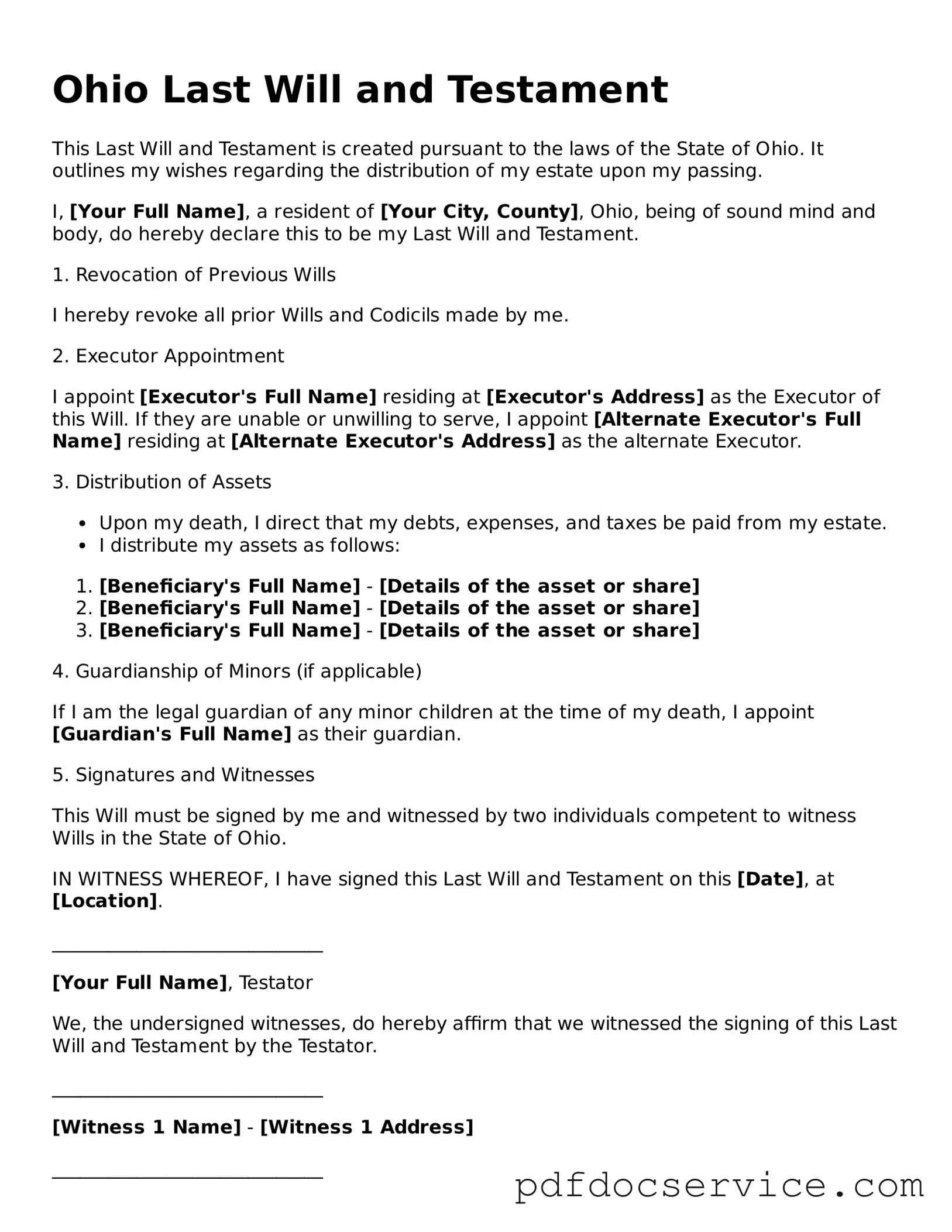What is a Last Will and Testament in Ohio?
A Last Will and Testament is a legal document that outlines how an individual's assets and affairs should be managed and distributed after their death. In Ohio, this document allows individuals to specify beneficiaries, appoint guardians for minor children, and designate an executor to carry out their wishes.
Who can create a Last Will and Testament in Ohio?
In Ohio, any person who is at least 18 years old and of sound mind can create a Last Will and Testament. It is important that the individual understands the nature of their assets and the implications of their decisions when drafting the will.
What are the requirements for a valid Last Will and Testament in Ohio?
For a Last Will and Testament to be valid in Ohio, it must meet the following criteria:
-
The will must be in writing.
-
The testator (the person making the will) must sign the document.
-
The signing must be witnessed by at least two individuals who are present at the same time.
-
The witnesses must also sign the will, attesting to the testator's signature.
Can I change or revoke my Last Will and Testament?
Yes, individuals in Ohio can change or revoke their Last Will and Testament at any time while they are of sound mind. This can be done by creating a new will or by making a codicil (an amendment to the existing will). Additionally, physically destroying the old will can also serve as a revocation.
What happens if I die without a will in Ohio?
If an individual dies without a will in Ohio, their assets will be distributed according to state intestacy laws. This means that the state will determine how the deceased's property is divided among surviving relatives, which may not align with the deceased's wishes.
Can I include specific bequests in my will?
Yes, a Last Will and Testament can include specific bequests, which are gifts of particular items or amounts of money to named beneficiaries. This allows individuals to designate specific assets to specific people, ensuring that their wishes are honored.
What is the role of an executor in a will?
The executor is the person appointed in the will to manage the deceased's estate. Their responsibilities include gathering assets, paying debts and taxes, and distributing the remaining assets to the beneficiaries as specified in the will. It is crucial to choose someone trustworthy and capable of handling these responsibilities.
Do I need an attorney to create a Last Will and Testament in Ohio?
While it is not legally required to have an attorney to create a Last Will and Testament in Ohio, it is highly recommended. An attorney can provide guidance on legal requirements, help ensure that the will accurately reflects your wishes, and assist with any complex issues that may arise.
How can I ensure my will is properly executed?
To ensure a will is properly executed in Ohio, follow these steps:
-
Make sure the will is signed by you and witnessed by at least two individuals.
-
Store the will in a safe place and inform your executor and family members of its location.
-
Consider having the will notarized, although this is not required in Ohio.
Can I use a template for my Last Will and Testament in Ohio?
Using a template for a Last Will and Testament is possible, but caution is advised. Templates may not address specific needs or legal requirements unique to your situation. It is often beneficial to consult with an attorney to ensure that the will is valid and comprehensive.

